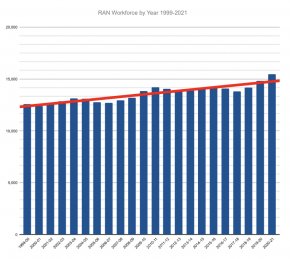But, someone of significant relevant experience wouldn’t be on the front line getting their hands dirty in *any* industry - their role would likely be in quality control, or other related roles. Identifying a good or bad weld or job doesn’t change. Methods, procedures, and efficiencies do.I have not worked in shipbuilding, nor do I possess much in the way of skills in welding, but I can attest that the phrase, "use it or lose it," does indeed apply to a number of skills which takes both training to acquire, then experience to hone. How long it takes for a person's skills to degrade to the point where they would need re-training, and/or how long it would take a person to get back up to speed, would be dependent on both the person, and the specific skills which need to be either re-learned or honed. At the same time though, it is also possible that in the interim phases were a potential or former skilled yard worker was out, that there could be material or process changes which would need to be learned, which someone who was not idled following a lack of work would have been kept up on.
Think of it like a senior Chef on the pass at a restaurant - they’re not actually cooking, but they choose which dishes go out and which dishes get remade. It’s a skill only a lot of hands on experience can provide which is a constant in quality control.





